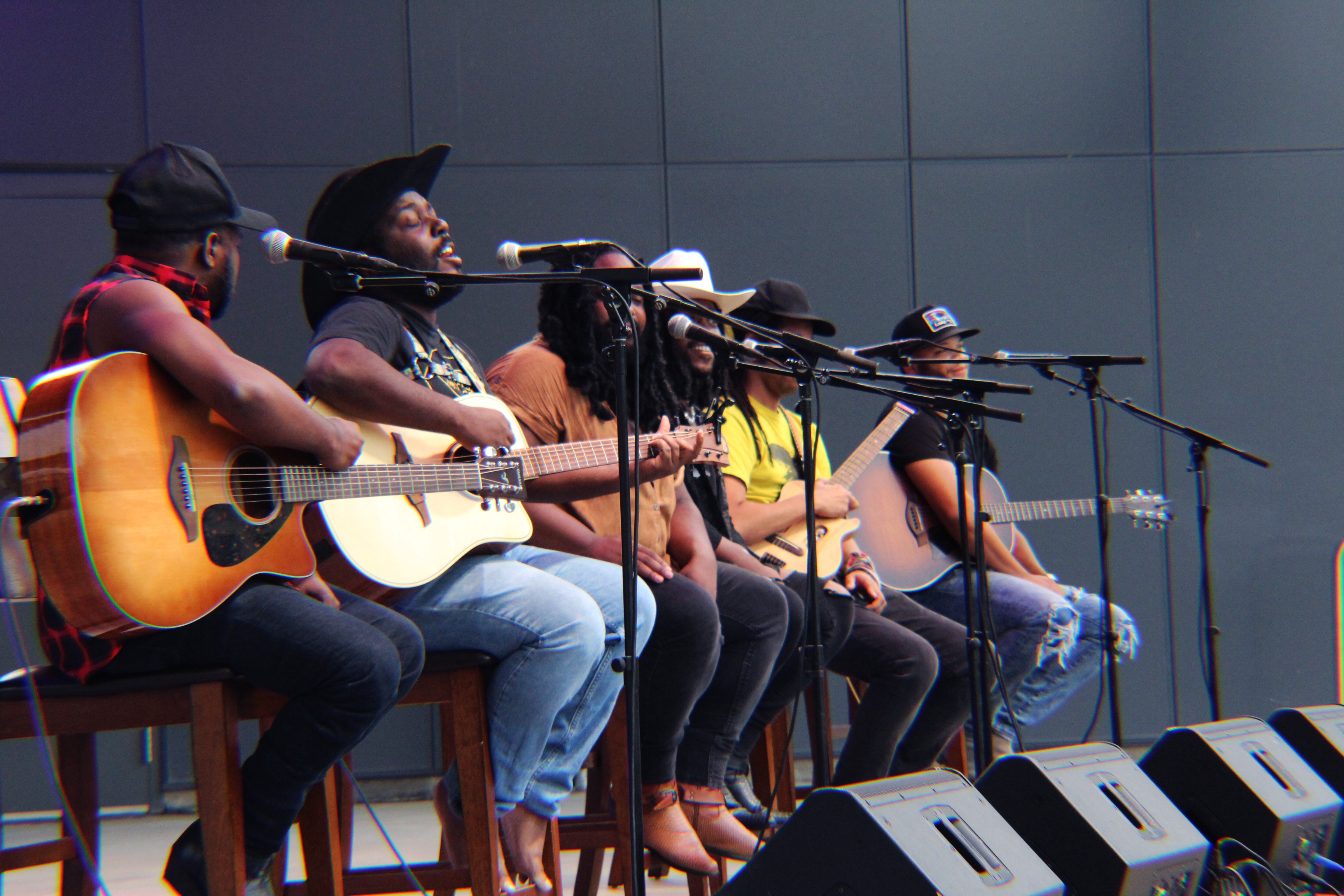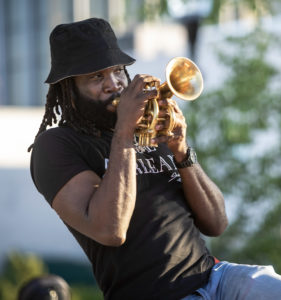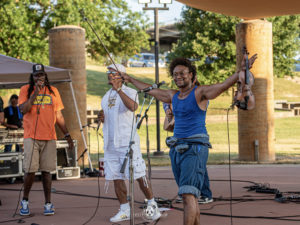
February is Black History Month, which means there’s no better time to celebrate the incalculable contributions that Black Americans have made to this country’s history and culture. And there are few places where these contributions are more numerous, or obvious, than in music. From jazz to blues, hip-hop, soul, funk, disco, techno, rock and roll, and countless other genres, so much of the bedrock of American popular music comes directly from Black musical traditions. And those traditions have never been static; they evolve, change with the times, and find ways to accommodate new sounds and styles. In honor of Black History Month, here are three performers who have become mainstays on Levitt stages across the country, who manage to engage with, help preserve, and challenge our understanding of the history of Black music.
For much of living memory, country has been one of America’s most thoroughly white-dominated music genres. (The Country Music Hall of Fame, for example, only has three Black members.) But that wasn’t always the case, and it’s becoming less and less so in the present day, as Black country musicians like Kane Brown, Darius Rucker, and Mickey Guyton continue to make serious waves as Nashville stars. Back in the genre’s infancy, Black musicians helped form the DNA of country music, only for so many of their contributions to be marginalized or forgotten. Helping to shatter those old perceptions is the Black Opry. Founded in 2021, the touring group is a rotating collective of Black Americana and country musicians who share songs and stories in a “writers-round” style. With performances at both Levitt Pavilion SteelStacks and Levitt Pavilion Dayton last summer, featuring the likes of Jett Holden, Tylar Bryant and Tae Lewis, Black Opry is fast becoming a Levitt favorite, and a reminder of the vast and under-sung contributions that Black musicians have made, and are still making, to this quintessentially American musical tradition.
Jazz is America’s preeminent musical art form. And New Orleans jazz is the watershed from which all subsequent styles of jazz flow. Countless musicians, in Louisiana and elsewhere, have kept the city’s formidable musical legacy alive over the decades, but trumpeter, composer, and Ninth Ward native Shamarr Allen deftly combines traditional New Orleans jazz with blues, funk, and hip-hop for a recognizable yet totally unique and modern sound. A veteran of Levitt stages across the country, including Levitt Pavilion Dayton and Levitt AMP Galva (and most recently performing at Levitt AMP Sheboygan in July of 2022), Allen also founded the True Orleans Foundation, a New Orleans nonprofit that offers clinics and programs designed to “teach, encourage, and support the cultures and traditions of New Orleans through the universal language of music.”
Before it became the dominant sound of contemporary popular music, hip-hop was a slippery, ever-malleable genre, created by Black youth in the South Bronx who managed to remix, recontextualize, and redefine music from multiple eras and genres to create something entirely new. And even today, hip-hop remains amenable to all sorts of new influences and forms of cross-pollination, as New York’s Gangstagrass amply demonstrate. Combining hip-hop with bluegrass, the group has been turning heads with its unique sound ever since composing the EMMY-nominated theme song for the FX series “Justified,” in 2010, playing multiple Levitt venues all the while, including Levitt AMP Fort Smith and Levitt Pavilion Arlington last summer. As the late novelist Elmore Leonard once said of the group’s music, Gangstagrass “takes two types of music that are opposites and mixes them together brilliantly in a way that is natural and enjoyable.” And finding natural, enjoyable connections between seemingly incompatible sounds is ultimately one of hip-hop’s historical hallmarks.


